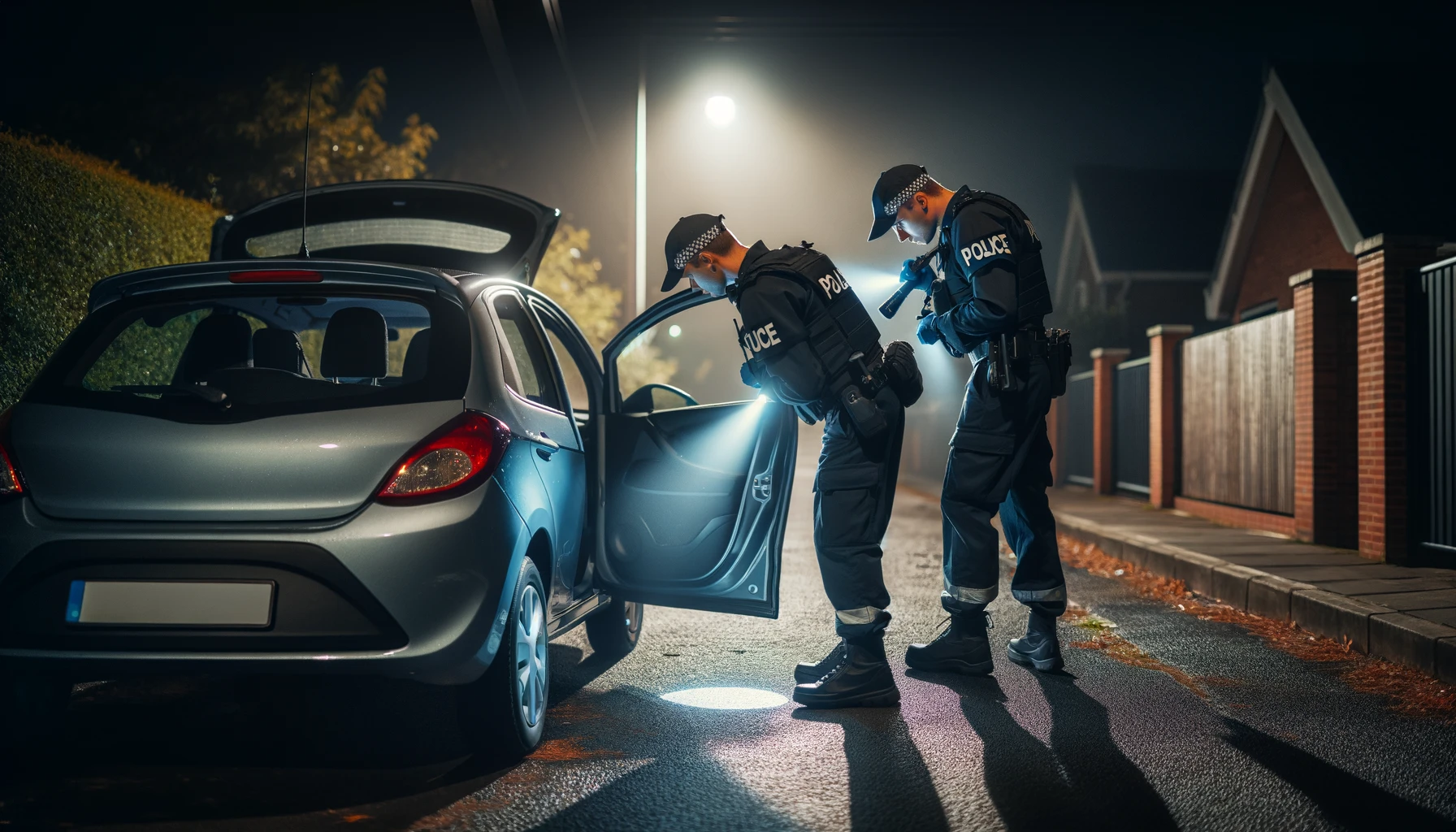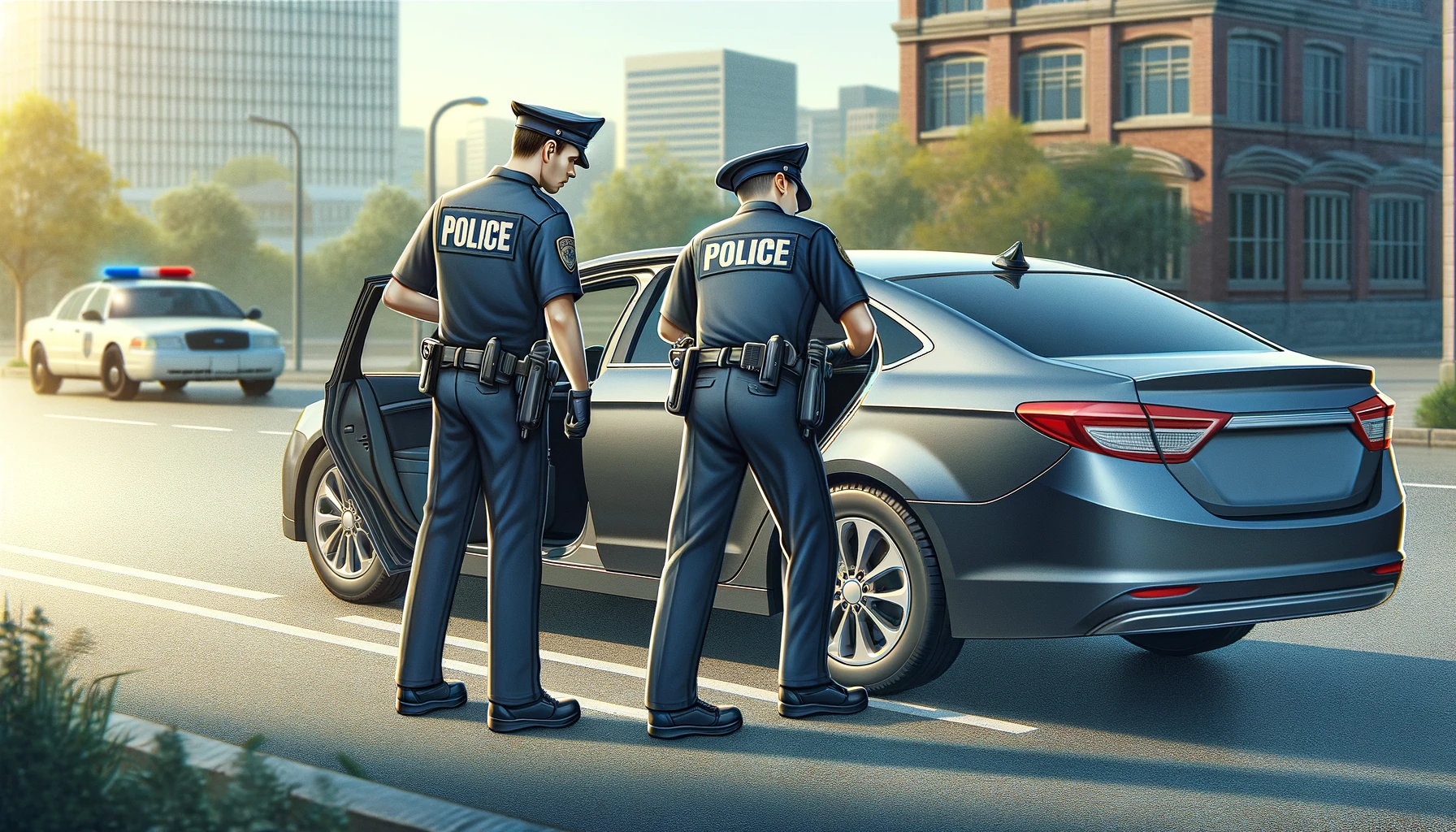Legal Thresholds in Vehicle Searches: Analyzing Commonwealth v. Jonathan Boyd
Feb. 24, 2024
 Com. v. Jonathan Boyd, 2023 PA Super 109 (June 13, 2023)
Com. v. Jonathan Boyd, 2023 PA Super 109 (June 13, 2023)
Background of the Case
In Commonwealth v. Jonathan Boyd, the appellant, Jonathan Boyd, found himself entangled in a legal battle following a routine traffic stop that escalated into a more serious investigation. The incident unfolded on July 25, 2021, when Officer Francis Ludovici of the Bensalem Township Police Department, while patrolling the streets of Bucks County, Pennsylvania, noticed Boyd's silver Chrysler sedan. The vehicle caught the officer's attention due to its heavily tinted windows, which appeared to exceed legal limits, and the inspection stickers on the windshield, which seemed off-color and potentially counterfeit.
As Officer Ludovici initiated the traffic stop, he approached the vehicle with caution, observing two occupants inside. Boyd, the driver, appeared nervous, fumbling with his paperwork and avoiding eye contact with the officer. Despite providing his driver's license and proof of insurance, Boyd was unable to produce the vehicle's registration documents. The officer's suspicion grew as he noticed an overwhelming number of air fresheners and other masking agents inside the car, commonly used to conceal the odor of narcotics.
During the interaction, Officer Ludovici detected a faint smell of marijuana, which Boyd admitted to smoking earlier, although he claimed not to have a medical marijuana card and denied having any marijuana in the vehicle. The situation escalated when the officer spotted a black Galco handgun holster on the backseat, raising concerns about the presence of a firearm in the vehicle, especially given Boyd's status as a person not permitted to possess a firearm due to a previous felony conviction.
Compounding the officer's suspicions were Boyd's travel itinerary and the location of the traffic stop. Boyd revealed that he was returning to Philadelphia after staying at the Knights Inn Hotel in Bensalem, an area known for high rates of drug and firearms crimes. Furthermore, the route Boyd was traveling on, U.S. Route 1, is recognized as a "Pipeline" highway, frequently used by traffickers to transport drugs and weapons between cities.
Given these circumstances, Officer Ludovici decided to impound Boyd's vehicle, citing administrative traffic and impoundment policies for vehicles not properly registered or insured. Subsequently, a search warrant was obtained from Magisterial District Judge Petrucci, leading to the discovery of evidence that would later form the basis of the charges against Boyd, including possessing a firearm while being a person not to possess, carrying a firearm without a license, possession of a small amount of marijuana, and possession of drug paraphernalia.
Lower Court's Decision
Boyd filed a motion to suppress physical evidence, challenging the legality of the traffic stop and the subsequent issuance of a search warrant. The trial court denied this motion. In its decision, the court noted Officer Ludovici's observations and experience, including the presence of numerous air fresheners in Boyd's vehicle, which the officer believed were used to mask the odor of narcotics. The officer also noted Boyd's nervous behavior and the presence of a gun holster in the backseat. Despite Boyd's consent to search the interior of the vehicle, he withdrew consent when the officer attempted to search the trunk. Based on these observations and Boyd's inability to provide proof of insurance or registration, the vehicle was impounded, and a search warrant was obtained. The search warrant execution led to the discovery of evidence supporting the charges against Boyd.

Superior Court's Reasoning and Decision
The Superior Court, in affirming the trial court's decision, provided a comprehensive analysis of the factors contributing to the probable cause determination for the issuance of the search warrant. The court emphasized the importance of considering the totality of circumstances presented in the Affidavit of Probable Cause, rather than evaluating each factor in isolation.
The court acknowledged the post-Medical Marijuana Act ("MMA") jurisprudence, which has held that the mere odor of marijuana alone does not constitute probable cause for a search. However, in Boyd's case, the odor of marijuana was just one element in a constellation of factors that raised suspicion. The court highlighted that Boyd's admission to smoking marijuana, combined with his lack of a medical marijuana card, added weight to the officer's suspicion of illegal drug activity.
Furthermore, the court noted the presence of common drug masking agents in Boyd's vehicle, which, when coupled with his nervous demeanor and the route of travel along a known drug-trafficking corridor, contributed to the probable cause determination. The court cited Commonwealth v. Arias, where similar circumstances, including the odor of marijuana, nervous behavior, and presence in a high crime area, provided sufficient suspicion of criminal activity to justify a search.
The court also addressed the significance of the empty gun holster observed in Boyd's vehicle. While Boyd attempted to downplay its importance, the court found its presence particularly concerning given Boyd's status as a person not permitted to possess a firearm. The court drew parallels with Commonwealth v. Evans, where the observation of an empty gun holster, among other factors, supported the issuance of a search warrant. The court reasoned that the totality of facts in Boyd's case, including his travel from a high crime area and the presence of the holster, created a fair probability that firearms and drugs would be found in the vehicle.
The Superior Court concluded that the trial court did not err in denying Boyd's motion to suppress evidence obtained through the search warrant. The court affirmed that the totality of circumstances presented in the Affidavit of Probable Cause established probable cause to believe that contraband or evidence of a crime would be found in Boyd's vehicle. Consequently, the judgment of sentence was affirmed, underscoring the court's reliance on established legal principles and the practical application of the totality of circumstances test in determining probable cause for a search warrant.

Conclusion
Probable cause for the search was established based on a combination of factors: Boyd was stopped for heavy window tint and apparent counterfeit inspection stickers, he appeared nervous during the traffic stop, efforts were made to mask the odor of marijuana emanating from the vehicle, he had stopped at a hotel known for drug and firearms crimes, and there was an empty holster in the car. These circumstances, taken together, provided a fair probability that contraband or evidence of a crime would be found in the vehicle, justifying the issuance of the search warrant and the subsequent denial of the motion to suppress."
- THE TOWN LAW LLC
